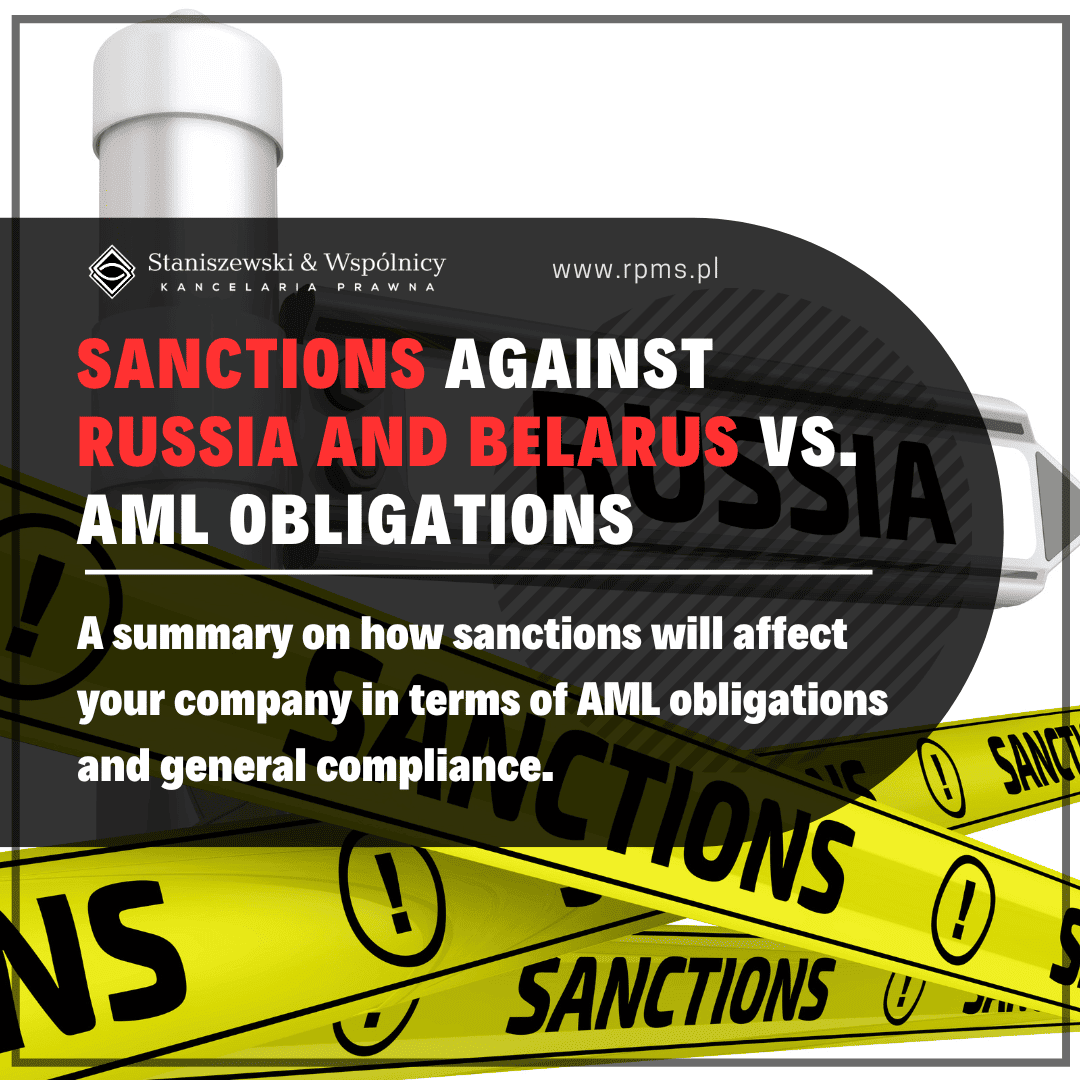Table of contents
Foreign entrepreneurs interested in commencing legal operations in Poland must select a form of business activity and fulfill specific conditions associated with their choice. In this text, we present each available form of business activity for foreign entrepreneurs, as well as the principles of establishing a branch.
What options do foreign entrepreneurs have in Poland?

All foreign entrepreneurs seeking to expand their business operations to Poland are able to do so by choosing one of three methods:
- Establishing a new company in Poland.
- Creating a branch of a foreign company in Poland.
- Establishing a representative office of a foreign company in Poland.
However, it is crucial to consider that, according to the Act of March 6, 2018, on the Rules of Participation of Foreign Entrepreneurs and Other Foreign Persons in the Economic Trade on the territory of Poland (consolidated text, Journal of Laws of 2022, item 470; hereinafter referred to as the “Act on the Participation of Foreign Entrepreneurs”), foreign individuals from EU member states and European Free Trade Association (EFTA) member states – countries other than Poland, are entitled to conduct business activities on the same terms as Polish citizens.
Furthermore, the aforementioned Act on the Rules of Participation of Foreign Entrepreneurs expands this group to include individuals who:
- Possess a permanent residence permit, a long-term resident of the European Union status, or temporary residence permit granted due to specific circumstances listed in the act.
- Have refugee status, supplementary protection, humanitarian stay permission, or tolerated stay permission in Poland.
- Hold a temporary residence permit in conjunction with marriage to a Polish citizen residing within the territory of the Republic of Poland.
- Hold a temporary residence permit for conducting business activities, granted based on continuing existing business activity registered in the Central Register of Information on Economic Activity (CEIDG).
- Benefit from temporary protection in Poland.
- Possess a valid Pole’s Card (Karta Polaka).
- Are family members of EU or EFTA citizens, and are joining such a family.
- Participate in support programs for foreigners undertaking and conducting business activities within the territory of the Republic of Poland.
Consequently, individuals from EU and EFTA countries, as well as those falling within the aforementioned categories, can conduct business activities in our country through:
- Establishing a new company in any available corporate form,
- Creating a branch or representative office.
On the other hand, entrepreneurs from outside the EU and EFTA, as well as those not falling within any of the mentioned categories, have limited options for operating in Poland. Nonetheless, they can still choose two out of the three enlisted methods of conducting business, namely establishing:
- a branch of a foreign company in Poland.
- a representative office of a foreign company in Poland,
provided that ratified international agreements do not state otherwise.
Regarding the establishment of a completely new company, they can only do so in the forms of a limited partnership, limited joint-stock partnership, limited liability company, simple joint-stock company, and joint-stock company (according to Article 4(3) of the Act on the Rules of Participation of Foreign Entrepreneurs). Entities of these aforementioned forms can also join and acquire shares and stocks. The condition, once again, is that international agreements do not state otherwise.
In summary, such entrepreneurs outside the EU and EFTA cannot engage in sole proprietorship, civil partnership, general partnership, and partnership activities in our country.
Although this article primarily focuses on establishing a foreign company’s branch in Poland, it is worth briefly mentioning the possibilities of establishing a representative office and explaining the key differences between a department and a representative office.
Distinguishing a Branch from a Representative Office
Each of these methods allows the expansion of business activities beyond the administrative borders of a country while avoiding the necessity of forming a separate company based in Poland.
The crucial term here is ‘scope,’ which distinguishes a branch from a representative office. As per the Act on the Rules of Participation of Foreign Entrepreneurs, the scope of business activity for a representative office is limited to advertising and promoting the foreign entrepreneur’s activities. Consequently, a representative office solely serves a marketing function for the company and does not enable actual business operations in Poland.
Conversely, the scope of a branch’s activities is limited only to the extent to which the foreign entrepreneur conducts the same business activity outside Poland’s borders. As a result, a branch’s scope is much broader.
However, the choice between a branch and a representative office depends on the situation and individual conditions of the specific enterprise. Each of these institutions can be the ‘better’ option depending on particular goals, intentions, and assumptions.

Conditions for Establishing a Foreign Company’s Branch in Poland

Once the decision to establish a foreign company’s branch in Poland is made, one should familiarize themselves with the associated conditions and the precise procedure for registering the department.
Firstly, as a foreign entrepreneur, one must appoint an authorized person to represent the branch. It is necessary to register the foreign department in the National Court Register (KRS) for it to be able to start its business activities.
The following actions need to be taken:
- Submit an application as a foreign entrepreneur (written in Polish) to the National Court Register (it is crucial to note that starting from July 1, 2021, the application can only be submitted electronically through the Register of Courts Portal; any applications submitted in other forms will be returned for completion),
- Include the required documentation with the application, which comprises:
- Founding deed, agreement, or statute (authenticated translations into Polish are necessary – therefore, neither an original document not written in Polish, nor an informal, unauthenticated translation is sufficient),
- Information about the Polish correspondence address of the authorized person in the branch for representation purposes, in line with statutory requirements,
- Extract from the foreign register of entrepreneurs, along with its authenticated translation into Polish,
- Certificate from the Polish representation on mutual functioning,
- Any necessary powers of attorney and related tax fees,
- Pay the court fee for registration and the fee for the announcement of the entry in the Court and Economic Monitor.
How Long Does KRS Registration Take and What to Do if the Application Is Rejected?
An application for registration of a foreign company’s branch in the National Court Register, as per Article 20a(1) of the Act of August 20, 1997, on the National Court Register (consolidated text, Journal of Laws of 2022, item 1683 with subsequent amendments), should generally be reviewed within seven days from the date of submission to the court. However, it is essential to emphasize that this period is purely instructional, and no penalties apply for exceeding it. Therefore, unfortunately, the deadline is often not met. In practice, such applications are typically reviewed within 1-2 months.
If the application has deficiencies, the court will request the entrepreneur to complete them within a specified timeframe. Failure to complete these deficiencies will result in the application being returned without review. Rectifying any errors indicated by the court within seven days allows the application to proceed further, and it will be reviewed within seven days from the date of submission of the complete, corrected application.
In exceptional, justified cases, the court may refuse to register the branch in the National Court Register. In such a scenario, the foreign entrepreneur can file an appeal with the regional court via the court that issued the decision. This must be done within two weeks from the date of receiving the decision of non-registration, along with its justification.

Other Considerations Beyond the Application

It is important to remember that besides submitting a correctly filled application for branch registration along with the necessary attachments, additional supplementary data must be reported to the relevant tax office. This includes details such as bank account numbers, information about the business location, contact details, information about an entry in the Central Register of Beneficial Owners (CRBR), specific company statuses, agreements, and changes that might be subject to civil law transaction tax or other forms of taxation. This must all be reported using the appropriate NIP-8 form within 21 days of branch registration in the National Court Register and within seven days of commencing operations.
Special Obligations of a Branch
An entrepreneur opting to establish a branch of their company must fulfill various additional obligations besides the aforementioned registration requirements. These are essential for the proper functioning of the department.
According to the Act on the Rules of Participation of Foreign Entrepreneurs, these obligations include:
- The obligation is to use the foreign entrepreneur’s original name, along with the translated form of their legal form and the addition of “branch in Poland,” for the branch’s identification.
- Keeping separate accounting records for the branch in accordance with Polish regulations and in the Polish language.
- Reporting any changes in factual or legal circumstances, such as the commencement of liquidation proceedings of the foreign entrepreneur who established the branch, or the loss of the right to conduct business activities, to the minister within 14 days from their occurrence.

Business Activities Conducted in Poland by Entrepreneurs from France, Italy, Germany, Norway, and Zanzibar

In accordance with the above, in order to engage in economic activities on the territory of Poland on the same terms as Polish citizens, affiliation with member states of the European Union or member states of the European Free Trade Association (EFTA) party to the Agreement on the European Economic Area is necessary, while also taking into consideration entities distinguished by the specific characteristics mentioned above.
However, to comprehensively expound upon the outlined theory, it is imperative to present it in practical terms and outline specific examples of foreign entrepreneurs planning to establish a representative office, branch, or new company in our country, hailing from various nations. In our case, let the entrepreneurs be from France, Italy, Germany, Norway, and Zanzibar:
- Entrepreneurs from France, Germany, Italy, and Norway are in the most favorable position. They are entitled to the broadest scope of options, as per regulations, enabling them to engage in economic activities within the Republic of Poland to the same extent as Polish citizens. France, Germany, and Italy are members of the European Union, while Norway is a party to the Agreement on the European Economic Area. Therefore, entrepreneurs from these countries need to merely: select a form of business activity in Poland (i.e., establish a new company, create a branch, or establish a representative office) and fulfill the aforementioned requirements while undertaking all necessary actions.
- Greater challenges and limitations are faced by an entrepreneur from Zanzibar – of course, assuming that they lack any connections with the Republic of Poland as listed in Article 4(2) of the Act, which we have already detailed in this article (such as a permanent residence permit, a valid Polish Card, or family ties). An entrepreneur from Zanzibar without affiliations to our country can solely establish a branch of a foreign company or its representative office in Poland. They cannot create a new company in Poland (on the same terms as Polish citizens).
According to Article 4(3) of the Act on the Rules of Participation of Foreign Entrepreneurs, such an entrepreneur can only engage in economic activities in the form of a limited partnership, limited joint-stock partnership, limited liability company, simple joint-stock company, and joint-stock company. They can also join and acquire shares and stocks in the aforementioned companies.
However, suppose such an entrepreneur determines a preference for establishing a foreign company’s branch within the territory of the Republic of Poland. In that case, they must undergo the same procedure established for entrepreneurs from France, Italy, Germany, or Norway.














